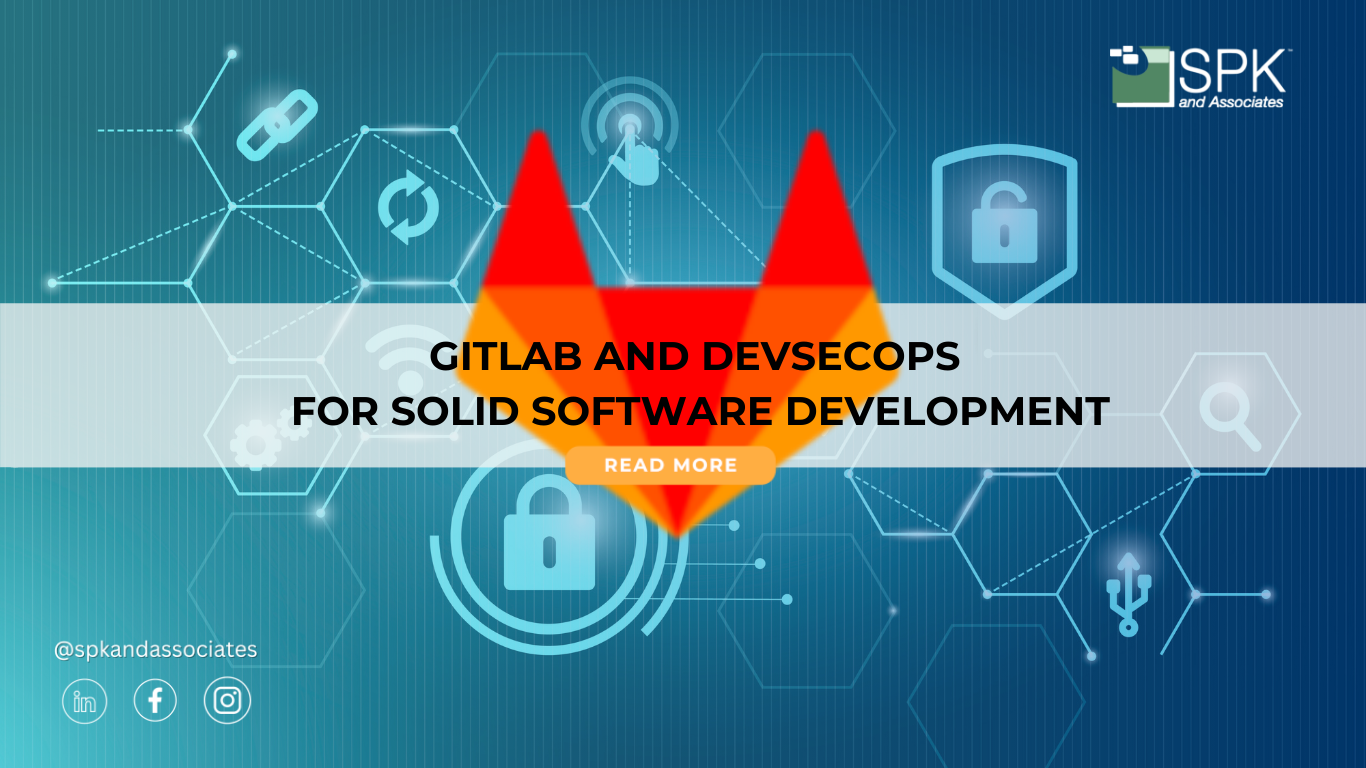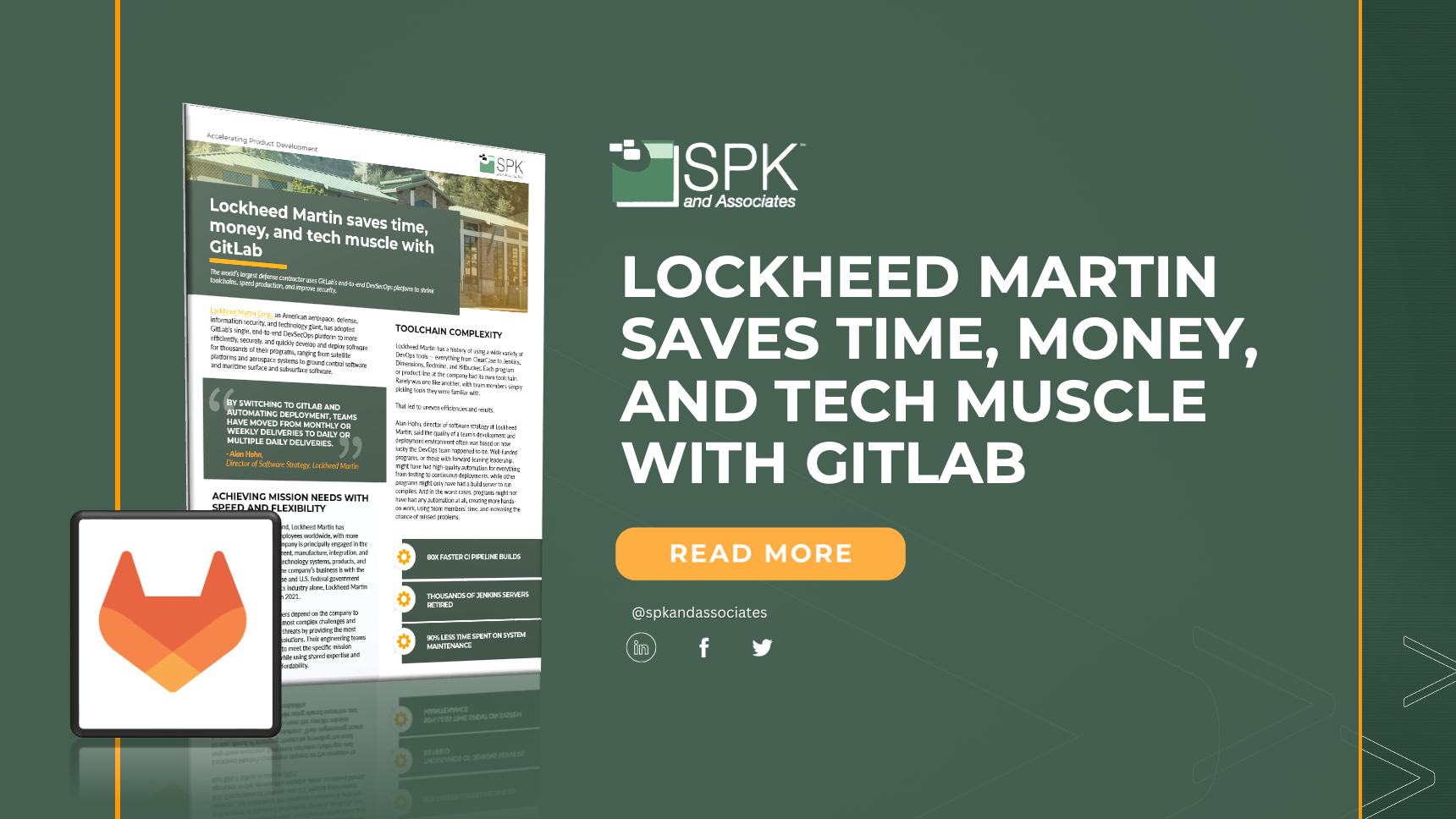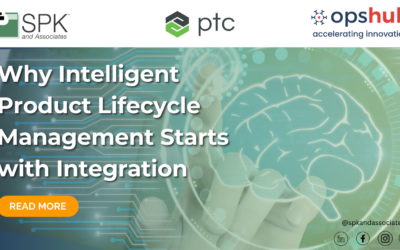Staying competitive requires more than just code and creativity. In fact, it demands way more. For example, a strategic approach to streamline development, ensure security, and foster collaboration. Two methodologies emerged to address these needs: DevOps and DevSecOps. In this blog post, we’re covering what DevOps and DevSecOps entail. We’ll also take a closer look at the powerful features that make GitLab the go-to platform for DevSecOps.
DevOps vs. DevSecOps
DevOps is a software development methodology fundamentally changing the way Development and Operations teams collaborate to build and deliver software. As a quick overview, it focuses on:
- Emphasizing automation and Continuous integration and continuous delivery (CI/CD).
- Reducing development cycle times.
- Enhancing collaboration.
- Ensuring faster software deployments.
- Breaking down silos between development and operations.
- Fostering a culture of shared responsibility for the entire software delivery process.
This approach accelerates development and delivery, making it more responsive to changing requirements.
DevSecOps
Online and digital are becoming increasingly complex. That means there is a deeper requirement for solid security practices to protect. DevSecOps builds upon the foundation of DevOps. But, it also takes it a step further by integrating security into every stage of the software development lifecycle. And, unlike the traditional approaches where security is often an afterthought, DevSecOps sits at the other end of the spectrum. DevSecOps ensures security is a continuous and integral part of the development process.
Is DevSecOps Just DevOps with Security?
DevSecOps is not merely DevOps with added security; it’s a more evolved approach. In DevSecOps, security is tightly woven into the fabric of development and operations. “Shifting left securely’ encapsulates the integration of security measures at the early stages of the software development life cycle. This approach fundamentally aims to proactively address security concerns by embedding security practices and considerations as an inherent part of the development process rather than treating it as an afterthought.
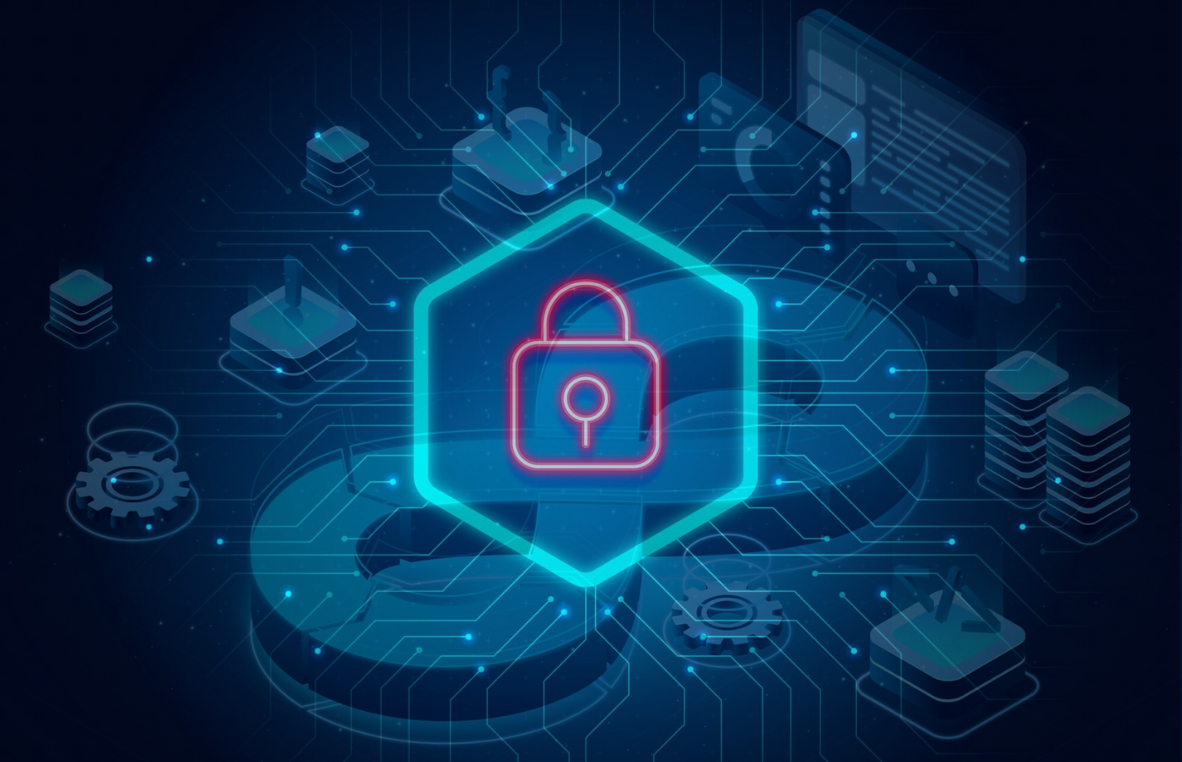
By adopting this strategy, developers and security teams collaborate from the project’s outset to identify potential vulnerabilities, implement security protocols, and mitigate risks. This methodology not only accelerates the identification and resolution of security flaws but also streamlines the development process by fostering a culture where security is a shared responsibility, leading to more robust and resilient software products.
Moreover, using security to steer development tasks in the software development process ensures that security becomes an intrinsic component of the development workflow. It involves employing various security tools, automation, and best practices to guide and influence the development stages. This proactive involvement of security measures not only fortifies the software against potential threats but also promotes a more efficient development cycle. Teams employing this approach tend to incorporate security checkpoints, conduct regular code reviews, and implement automated security testing, allowing for rapid detection and rectification of security issues. Ultimately, this integration of security within the development process not only strengthens the overall security posture but also promotes a more agile, secure, and high-quality software delivery.
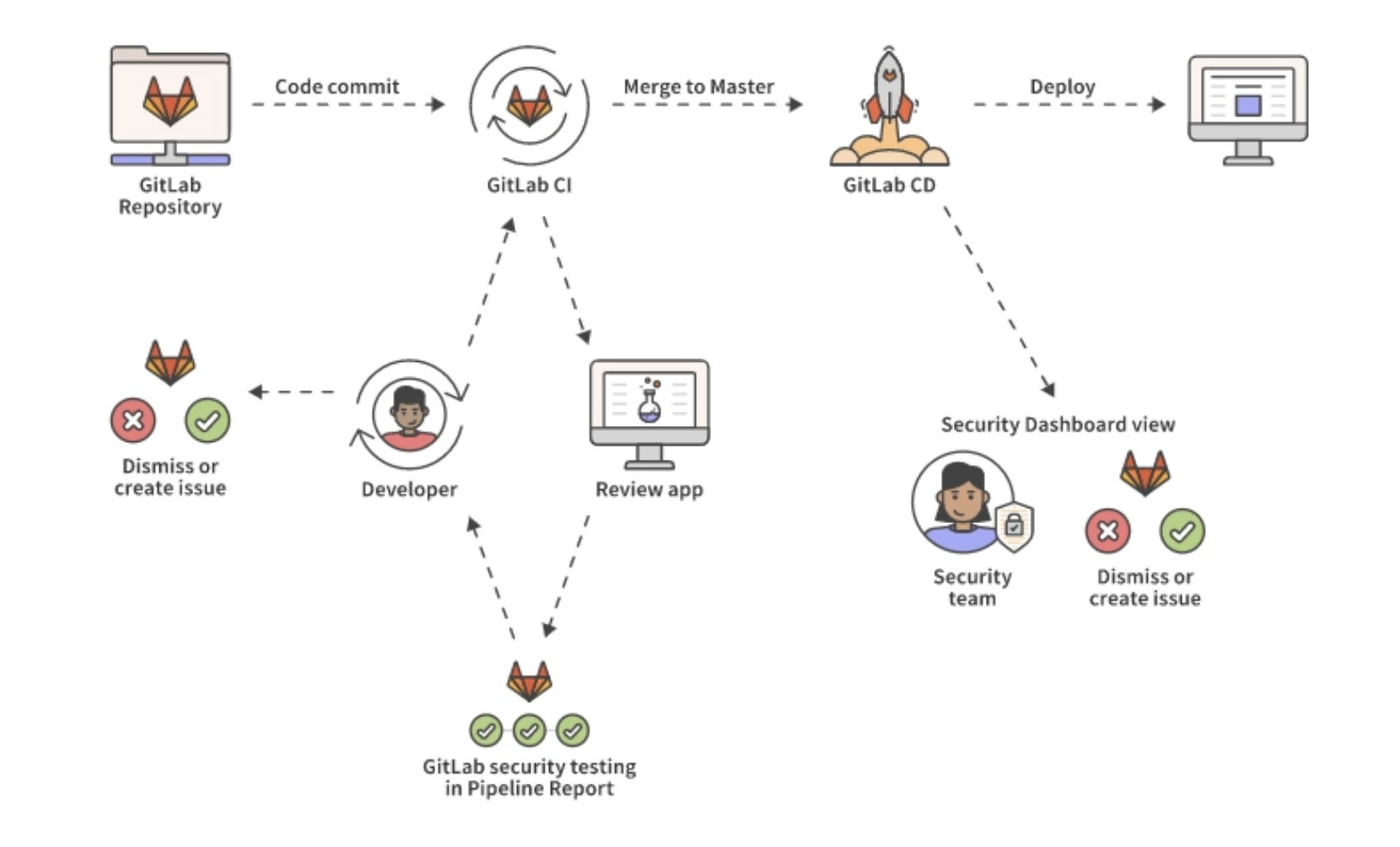
GitLab: The DevSecOps Solution
GitLab, is a renowned repository hosting and version control system. And, it excels in building software efficiently, from planning to production. Additionally, GitLab distinguishes itself from other platforms by its strong emphasis on CI/CD security, making it an ideal choice for DevSecOps. And, given Gartner named GitLab as a Leader in the MagicQuadrant for DevOps, you can bet it’s the best solution out there.
Features of GitLab for DevSecOps
GitLab offers a rich and comprehensive feature set specifically catering to the demands of DevSecOps. Let’s explore these features in more detail:
Security Scanning Tools
Firstly, GitLab boasts a versatile array of security scanning tools, making it a formidable choice for DevSecOps. These tools include:
- Static Application Security Testing (SAST): GitLab’s SAST scans source code for known vulnerabilities and potential security issues. Essentially, it catches issues early in the development process, reducing the risk of vulnerabilities persisting.
- Dynamic Application Security Testing (DAST): DAST scans running applications for vulnerabilities that may only be detectable during runtime. This real-time testing ensures your applications remain secure even after deployment.
- Interactive Application Security Testing (IAST): IAST combines the strengths of SAST and DAST by allowing DevOps engineers to interact with the source code during testing. It provides insights into application components and enhances the precision of security testing.
- Dependency Scanning: GitLab’s Dependency Scanning tool checks for vulnerabilities in the libraries and components used by your application. That means it helps you identify and address security issues stemming from third-party dependencies.
- Container Scanning: This feature scans container images for known vulnerabilities and misconfigurations. Essentially supporting organizations relying on containerized applications, ensuring security isn’t compromised during container deployment.
- API Security: GitLab extends its security focus to APIs with DAST API and API Fuzzing capabilities. These tools help developers identify and remediate issues in their applications’ APIs, a critical consideration in today’s API-driven landscape.
- Fuzz Testing: GitLab offers coverage-guided fuzz testing to identify vulnerabilities in code that may not be detected by other security scanning methods.
Automated Security Testing
As I noted above, GitLab seamlessly integrates security testing into the CI/CD pipeline. This automation is a hallmark of DevSecOps. It ensures security checks are consistently performed at every stage of development. By catching vulnerabilities early, GitLab significantly reduces the risk of security issues making it into production.
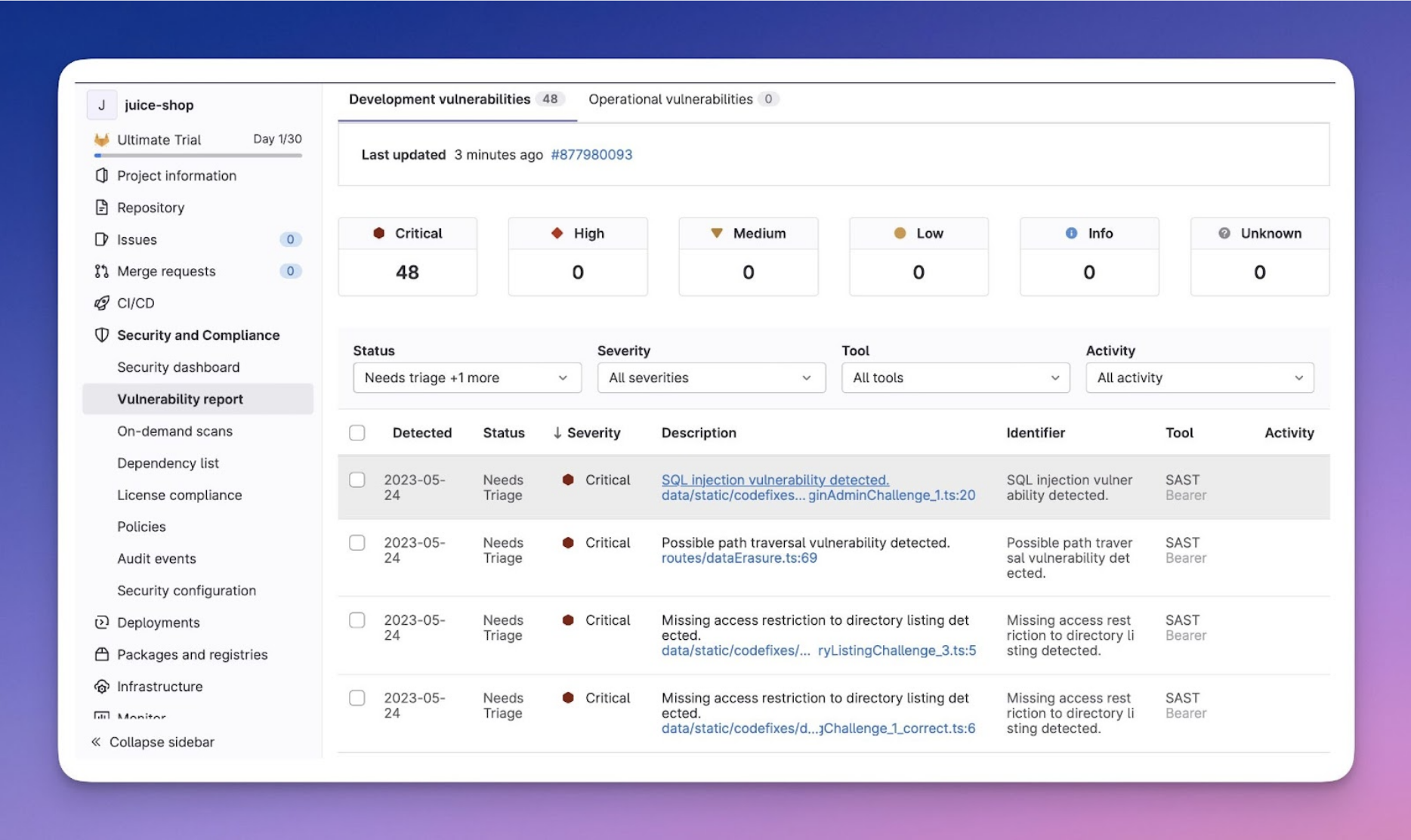
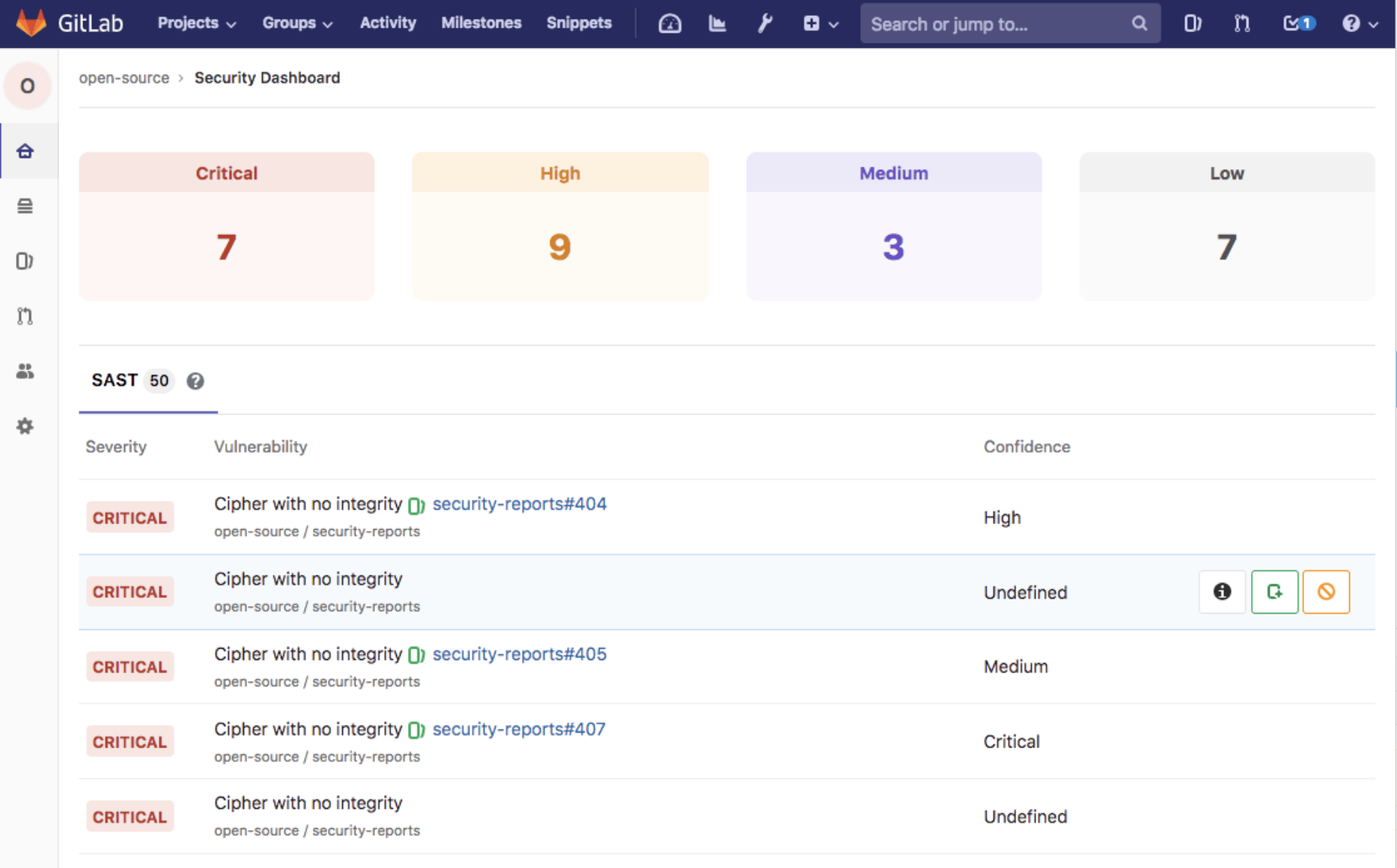
Security Dashboard
Next up is GitLab’s Security Dashboard. This provides a holistic view of security vulnerabilities within your projects. It simplifies vulnerability management by offering an overview of the security landscape. Additionally, this dashboard makes it easy for teams to track and manage security issues efficiently, providing a clear path for remediation.
Compliance Management
GitLab helps organizations navigate the complex world of compliance by tracking and managing compliance requirements. Basically, this feature ensures strict adherence to licensing and regulatory frameworks, reducing administrative overhead and the risk of compliance violations.
Integrated Security Training
One of the significant challenges in DevSecOps is getting developers to prioritize fixing code vulnerabilities. That’s why GitLab’s Integrated Security Training addresses this. It provides developers with actionable and relevant secure coding guidance within the platform. Ultimately, this not only reduces context switching but also instills a culture of security awareness and responsibility across the development team.
Role-Based Access Control
GitLab supports role-based access control, allowing organizations to define granular permissions for different team members. This ensures team members have access only to the resources and functions necessary for their roles, aligning with the principle of least privilege.
Continuous Integration/Continuous Deployment (CI/CD)
GitLab’s CI/CD capabilities are deeply integrated with its security features. And, this seamless integration ensures security testing is an intrinsic part of the automated pipeline. So, by identifying vulnerabilities early in the development process, GitLab reduces the risk of security issues reaching production. Ultimately, you’ll benefit from an enhanced overall security posture.
End-to-End Visibility
Lastly, GitLab provides end-to-end visibility and traceability of issues throughout the software delivery lifecycle, from the initial idea to the final production deployment. This visibility:
- Enhances collaboration.
- Streamlines communication.
- Ensures teams are working on the right tasks at the right time.
In DevSecOps, where collaboration is key, GitLab’s visibility features are indispensable.

Conclusion
GitLab is a Leader and an unquestionable solution for supporting DevSecOps practices. And, Gartner and ourselves at SPK agree. Afterall, it provides a comprehensive set of features facilitating the seamless integration of security into the development process. GitLab empowers organizations to build and deliver software that is both efficient and inherently secure.
If you need support implementing GitLab or improving your DevOps and DevSecOps practices, our team at SPK can help. Contact us here for support.


